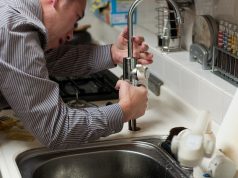
Your waste system is an integral part of your home because it processes your home’s waste and releases them into the drain field. If your waste system is working efficiently, you can have a waste-free home. However, you can achieve this by maintaining your waste system’s optimum condition.
That’s why you must consider the following tips to maintain your waste system:
- Clean The Pipes Regularly
One of the best maintenance tips to keep your waste system in order is to regularly clean your plastic waste pipes. Although plastic pipes used in your waste system, such as your bathroom and kitchen pipes, are corrosion-proof, they’re sensitive to harsh drain cleaners. You usually use harsh drain cleaners when your pipes are clogged.
That’s why you may need to keep your drain pipes from clogging. You can clean them by doing the following:
- Use Vinegar Solution: Add a ration of baking soda and hot water to vinegar and use the solution to clean the pipes. This solution will help eliminate odors and residue by letting it sit for at least 15 minutes. Then, pour boiling water into your drain to help remove mineral and stains deposits in your pipes.
- Pump Septic Tank: Septic tank is where your household waste goes and it fills up over time. That’s why you should also regularly pump your septic tank to prevent solid waste accumulation in your waste system. Depending on how large your household is, pumping your waste system can be done yearly.
- Apply High-Pressure Water Jetting: Another way to clean your drain pipes is to apply high-pressure water jetting. You can do this once every five years to clear out debris and clogs in your drain pipes. This process involves shooting high-pressure water into the pipes that connect the drain field and your septic tank.
- Be Careful What You Flush
As mentioned, you can help your waste system from clogging when you’re careful of what you throw down the drain. As you keep on discarding household objects into your sewage system, it can create havoc over time. That’s why you should not flush down the following waste into your sewage system:
- Food
- Vegetable peels
- Wrappers
- Sanitary Napkins
- Paper Towels
- Diapers
- Tissues
These solid wastes can eventually build up and clog your waste system. Not only for solid wastes, but you should also be careful with oil or grease. These liquids thicken, which can narrow the channel to which the waste flows. You should also not flush makeup stuff, cleansers, medications, and paint.
Although your waste system lets you dump your household waste, not all should go down the drain. Instead, use other designated waste management systems such as garbage cans or skip bins for those types of waste. Or a grease trap for grease and oil, especially if you have a commercial building.
- Add Bacteria To Your System

You might also need to use bacteria additives in your waste system. The live organic bacteria will help break down detergents, soaps, and other unnatural substances that enter your septic tank. They can also keep your pipes odor-free and clean.
Since some household substance that gets into your waste system can kill naturally occurring bacteria, you may need a bacteria additive to make up for such loss. These bacteria are essential to keep the process in your waste system efficient.
- Limit Water Flowing Out Of Your Home
One of the most common causes why septic tanks fail to function well is due to flooding. When your household releases too much wastewater, the drain field may flood easily. As a result, your waste system will flood because wastewater can’t wait long enough for your septic tank’s treatment.
Since septic tank treatment is costly, you may not want to do it twice or thrice a year. That’s why you should prevent this from happening by using your water efficiently. For instance, don’t let leaky toilets or faucets go unrepaired. As soon as possible, fix these leaks because they can add to your wastewater.
Conclusion
Keeping your waste system efficient is essential so your household waste will not cause harmful effects to your family. If your waste system isn’t efficient, not only will it clog your drain pipes, but it may also emit odor hazardous to the health. That’s why you need to watch out for the waste you flush into the system. If need be, you may also want to add bacteria to help make the waste system’s process more efficient. Also, don’t allow your waste system to flood by using water efficiently. Most importantly, keeping your drain pipes clean is also essential maintenance of your waste system.













